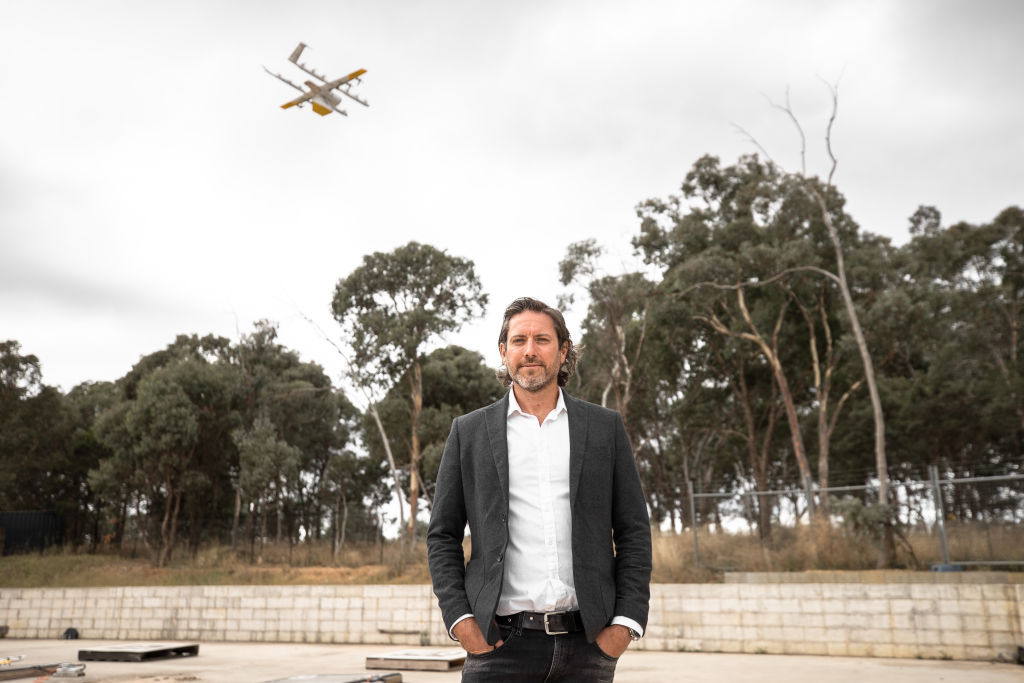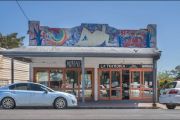
Knock knock, delivery by drone is at your doorstep
Feel like a hot coffee and a chicken burger? Dial a drone to pick them up and drop them off for you. Run out of nails on a DIY renovation project? Tap on the drone app to summon an immediate delivery.
If it all sounds like an implausibly sci-fi future, then it’s time to get smart: the technology wizardry may soon be coming to your own door.
It’s already begun in earnest in the Queensland city of Logan, between Brisbane and the Gold Coast, and in Canberra. In 2021, there were 100,000 deliveries by drones in both areas and, in the first three quarters of this year so far, 120,000.
And now major development and property management group Mirvac has announced that it’s partnering with Australia’s first on-demand drone delivery company Wing for use in its urban shopping centres to spread the love – and their goods – further.
“The first place we’ll be working on together will be a shopping centre in Ipswich, Queensland, from mid-2023, where we’ll have a drones ‘nest’ on the car park rooftop of Mirvac’s retail property, Orion Springfield,” said Simon Rossi, Wing general manager. “But Mirvac has a number of retail centres all across Australia, so we’ll be looking at more into the future.
“We have mid and long-term plans for further expansion nationally, and in the next couple of years, we’ll be delivering to a much larger part of Australia. We’ve been working with Mirvac for some time, and we have a shared vision of what urban communities will require in the future.”
Customers go onto the Wing app, look at the store it’s servicing, pick out the item they require, and then order it. That article, up to a kilogram, is then picked, packed and prepared and taken to the rooftop, where drones are hovering seven metres in the air, already plotting their course. That item is then put onto the packaging dangling by a tether, and the drone speeds off at 110 kilometres per hour to its destination.
On arrival, the drone again hovers off the ground, lowers the tether, releases the package and then departs back to its nest.
Now, Mirvac will be examining its other shopping centres to see where it has suitable space – on rooftops, on the ground plane or in unused parts of car parks – to establish more drone delivery hubs.
“We have big plans to roll it out over our network,” said Benjamin Conlon, national manager of retail development strategy at Mirvac. “We’d like to roll it out quickly, but the reality is that it takes a while to get all the necessary approvals to get it off the ground.
“I thought drone delivery was something that was pretty futuristic and a lot further away in time, but we watched the pilot at Logan being launched, and I think we’re now all getting more used to the idea.”
Wing, the operating company, is a subsidiary of Alphabet, the world’s first on-demand drone delivery service direct to homes and businesses, which operates on three continents. One of its major advantages is that it’s faster, cheaper, more convenient and much more sustainable than other forms of transportation, according to Rossi.
“Each drone has a small electric motor, so it produces less greenhouse gas at a time when 27 per cent of our greenhouse gas emissions are coming from transport on our roads,” he said.
“As well, it helps reduce congestion on our roads and in our cities, and it’s quick and easy and convenient. It just doesn’t make sense for a 1300-kilogram car to deliver something when it could be taken by a five-kilogram drone instead. We deliver a lot of coffee, and it’s still warm by the time it arrives, and it doesn’t spill.”
Mostly, it’s been food and other grocery items that have been delivered by drones so far, as well as prepared takeaway meals and drinks, with some chemist products and smaller hardware items.
Logan and Canberra were the first locations chosen because of support from their local councils and the Civil Aviation Safety Authority. It’s likely that the service will be established in suburban centres next as large city centres could be more problematic, with more air traffic, more density and more tall buildings and other obstacles.
“It does fit well with Mirvac’s perspective around introducing innovative projects for our portfolio,” said Conlon. “We are very focused on ideas that will help our retail partners and customers and enable our retailers to get closer to their audiences.
“We’re always exploring ideas out there to create more value, and eventually, we’d like to think we’ll be able to deliver even to customers in city centres via their balconies. But at the moment, it’s one step at a time!”










